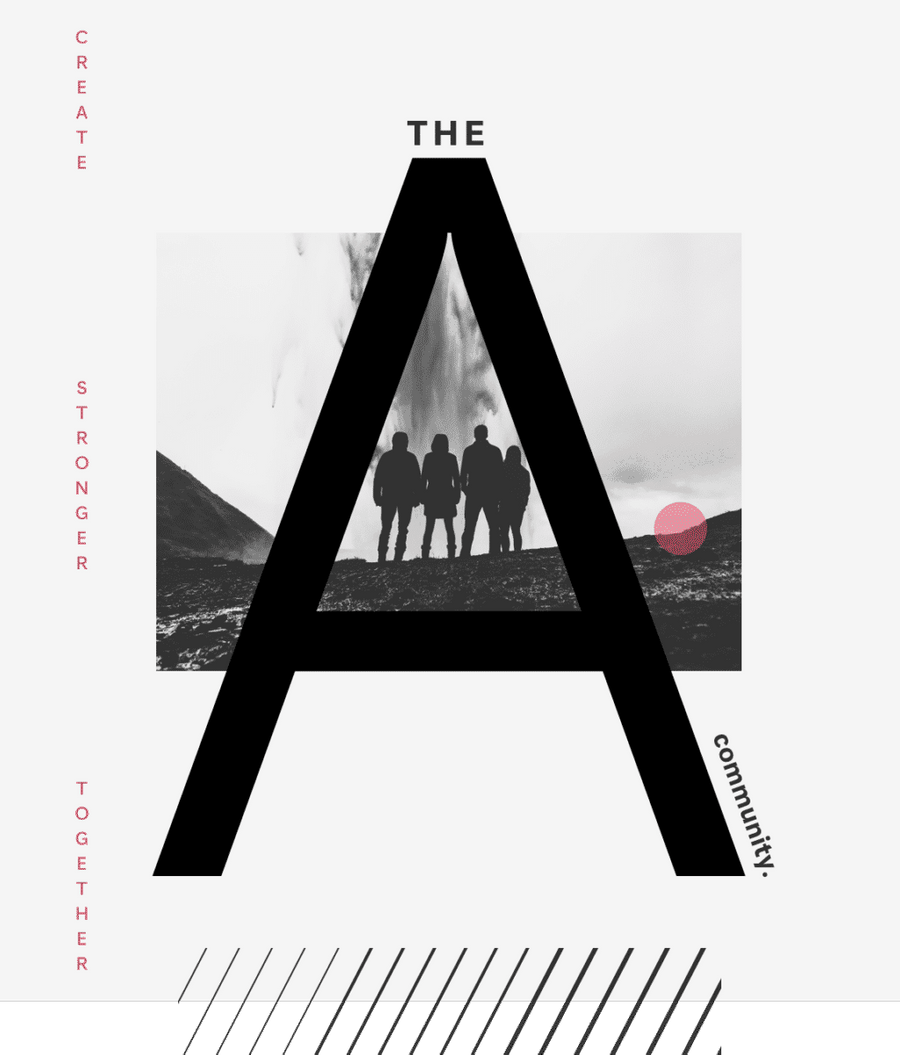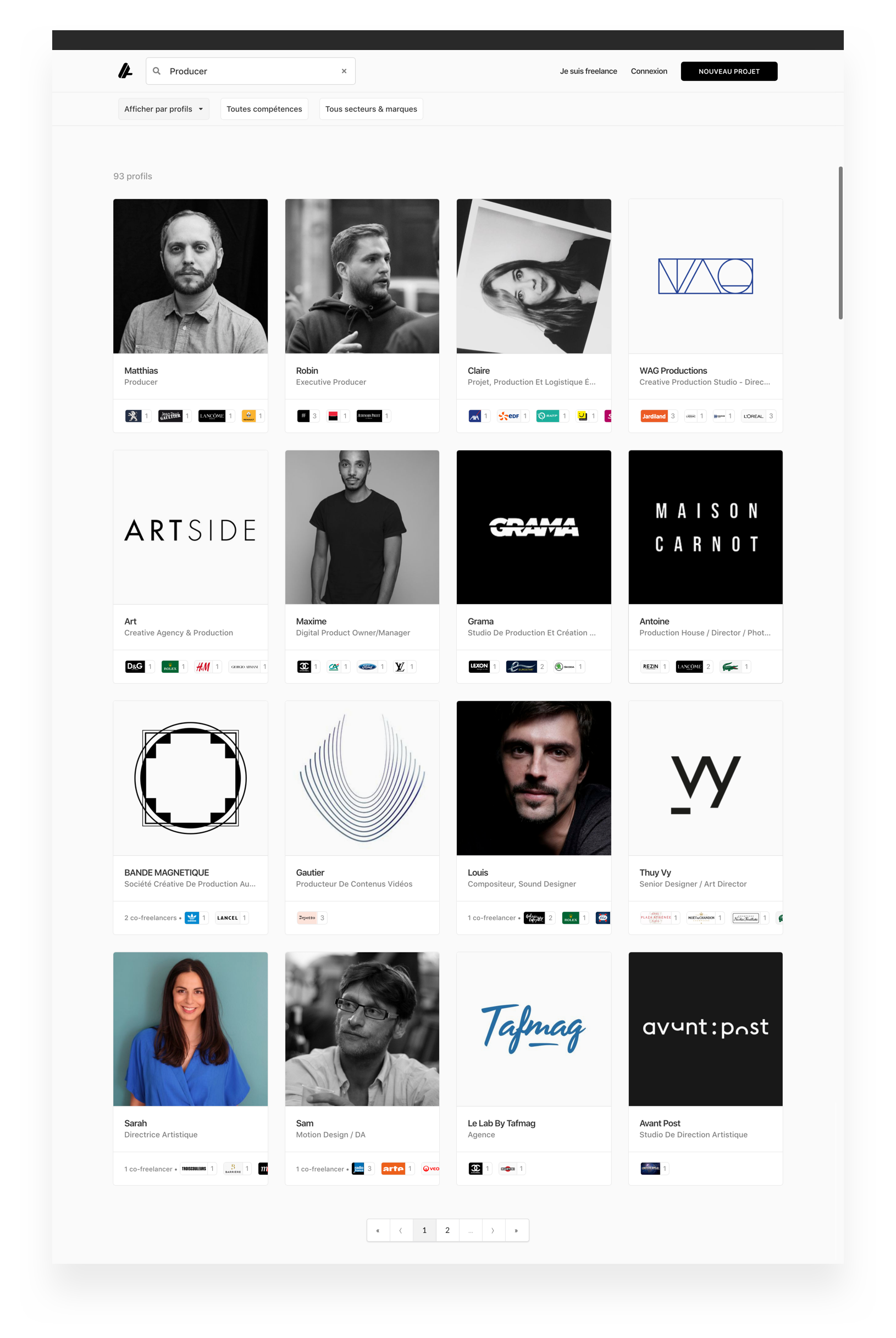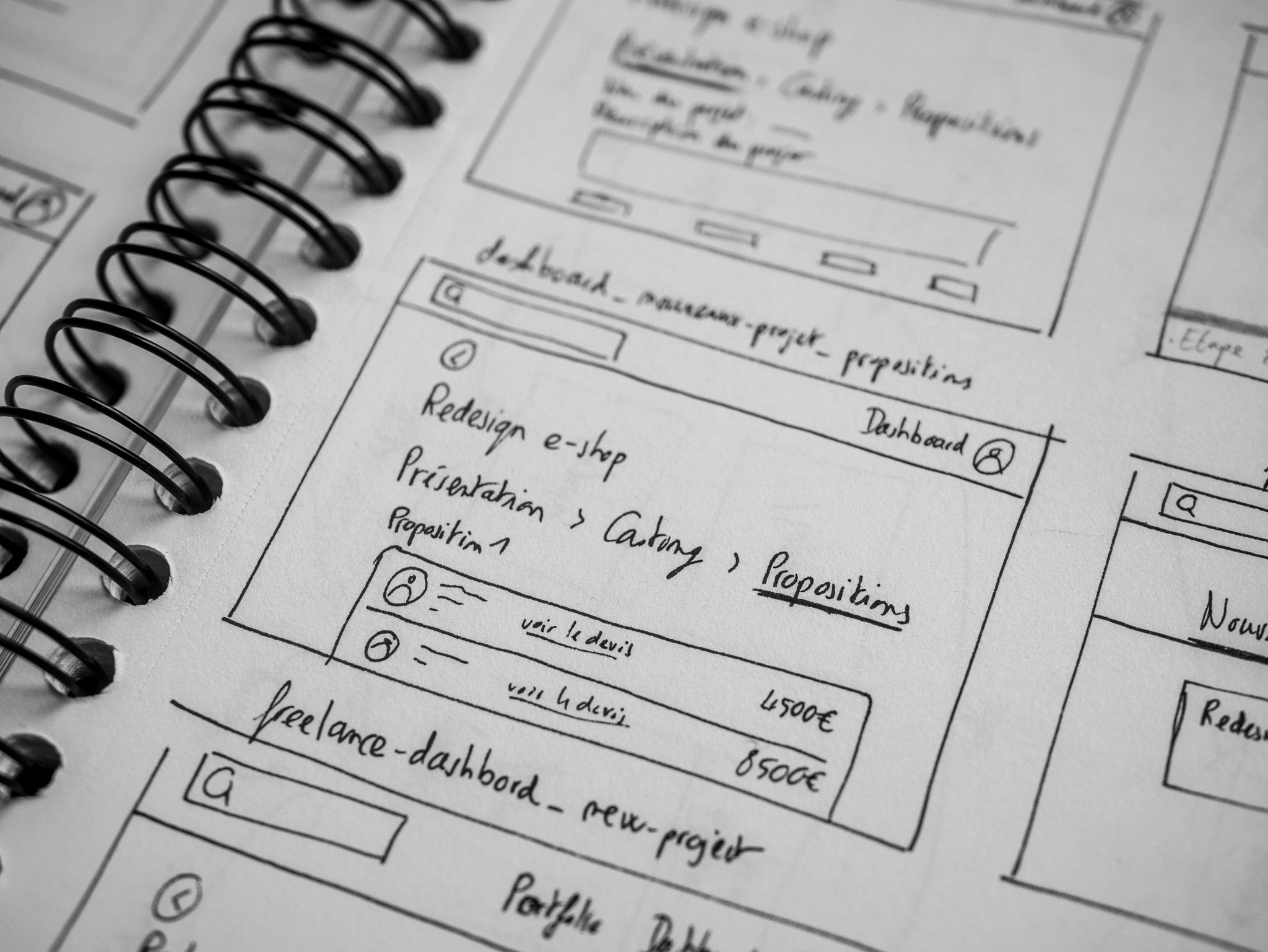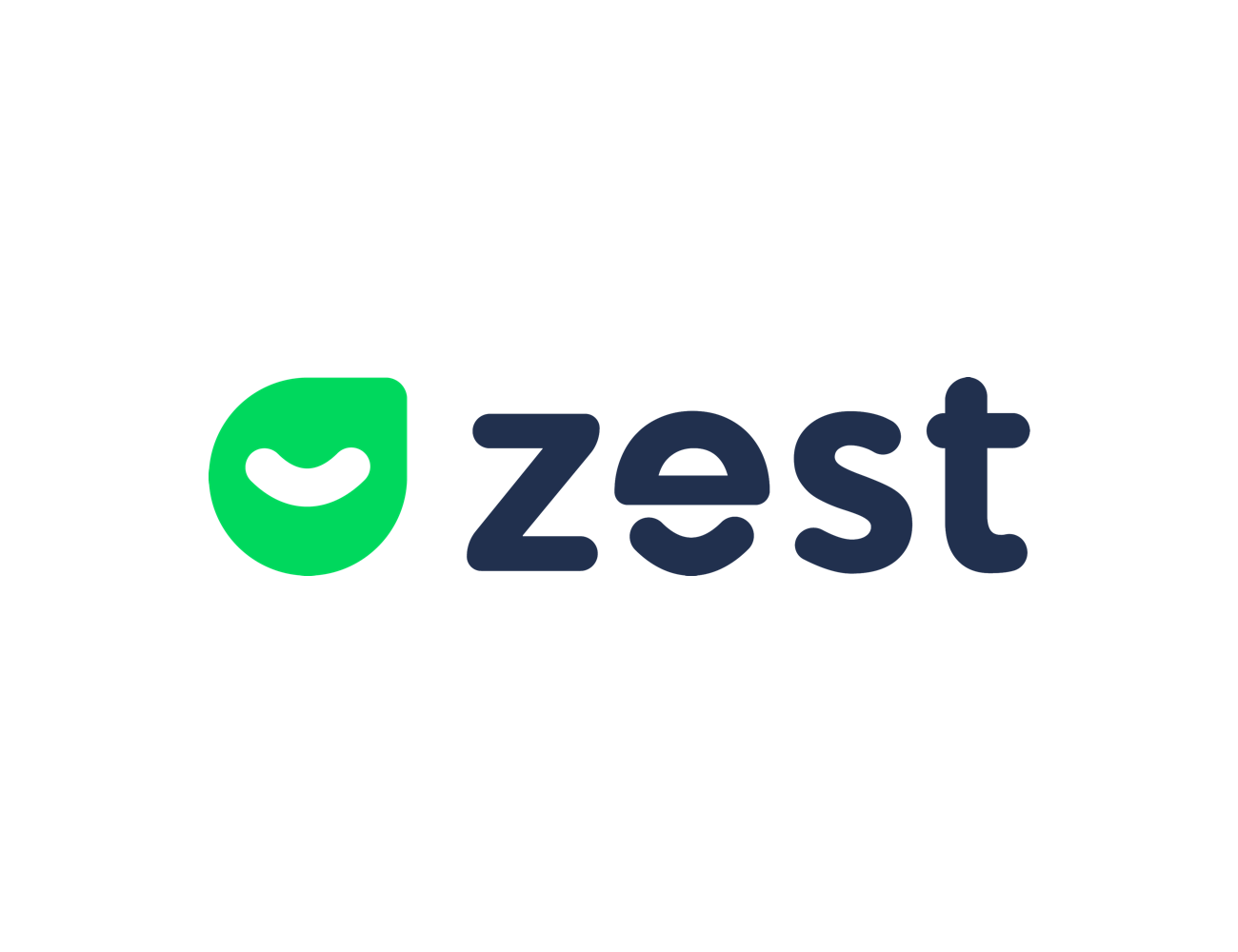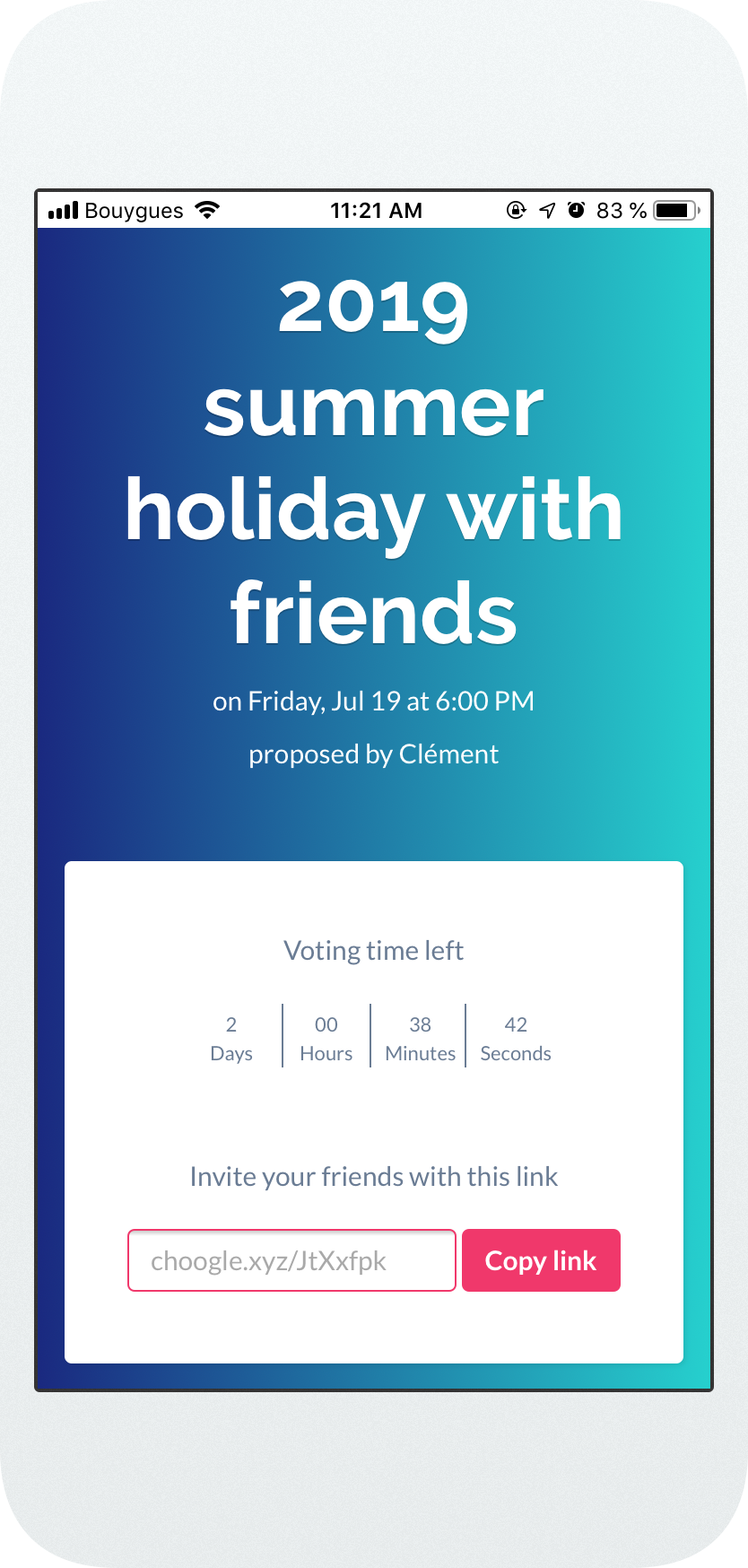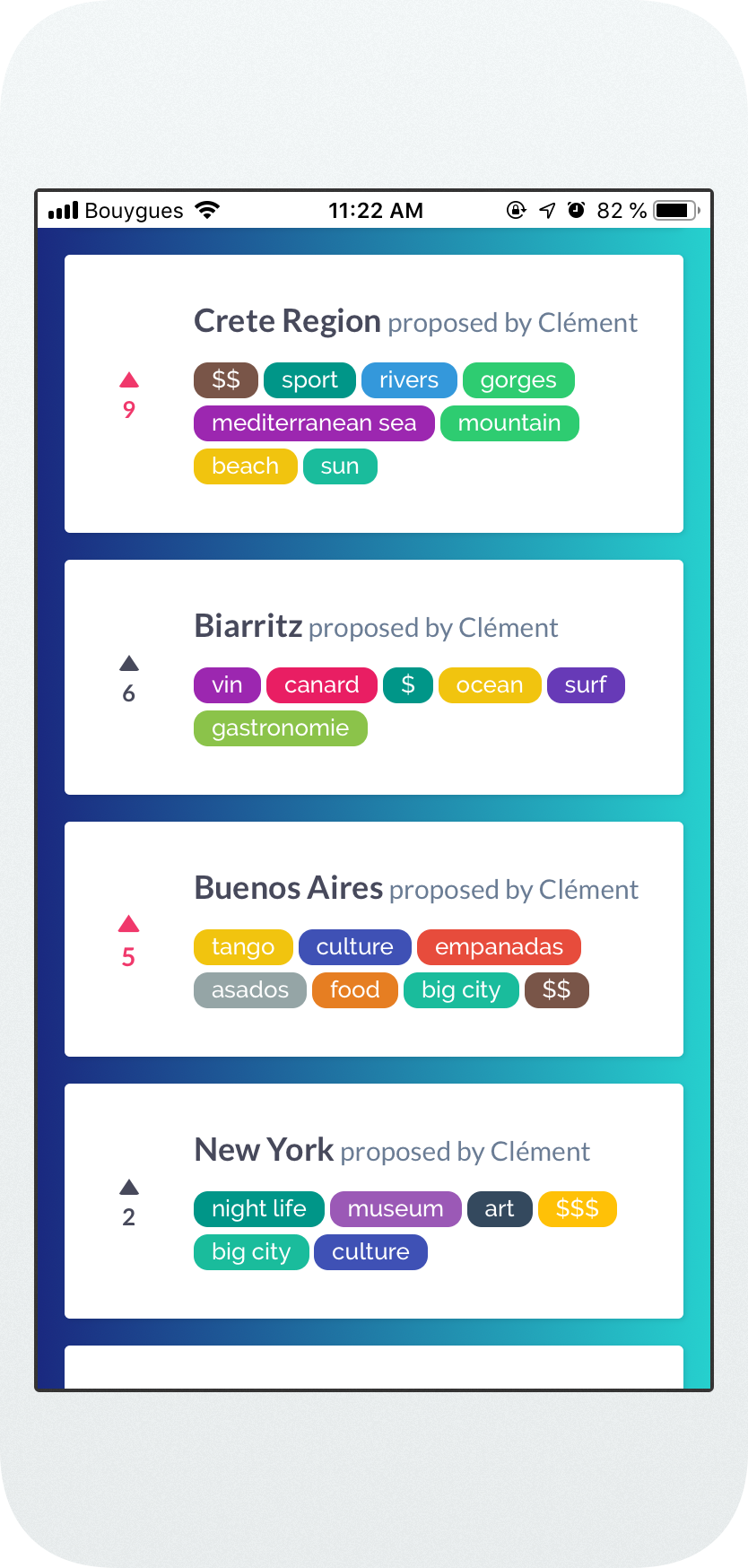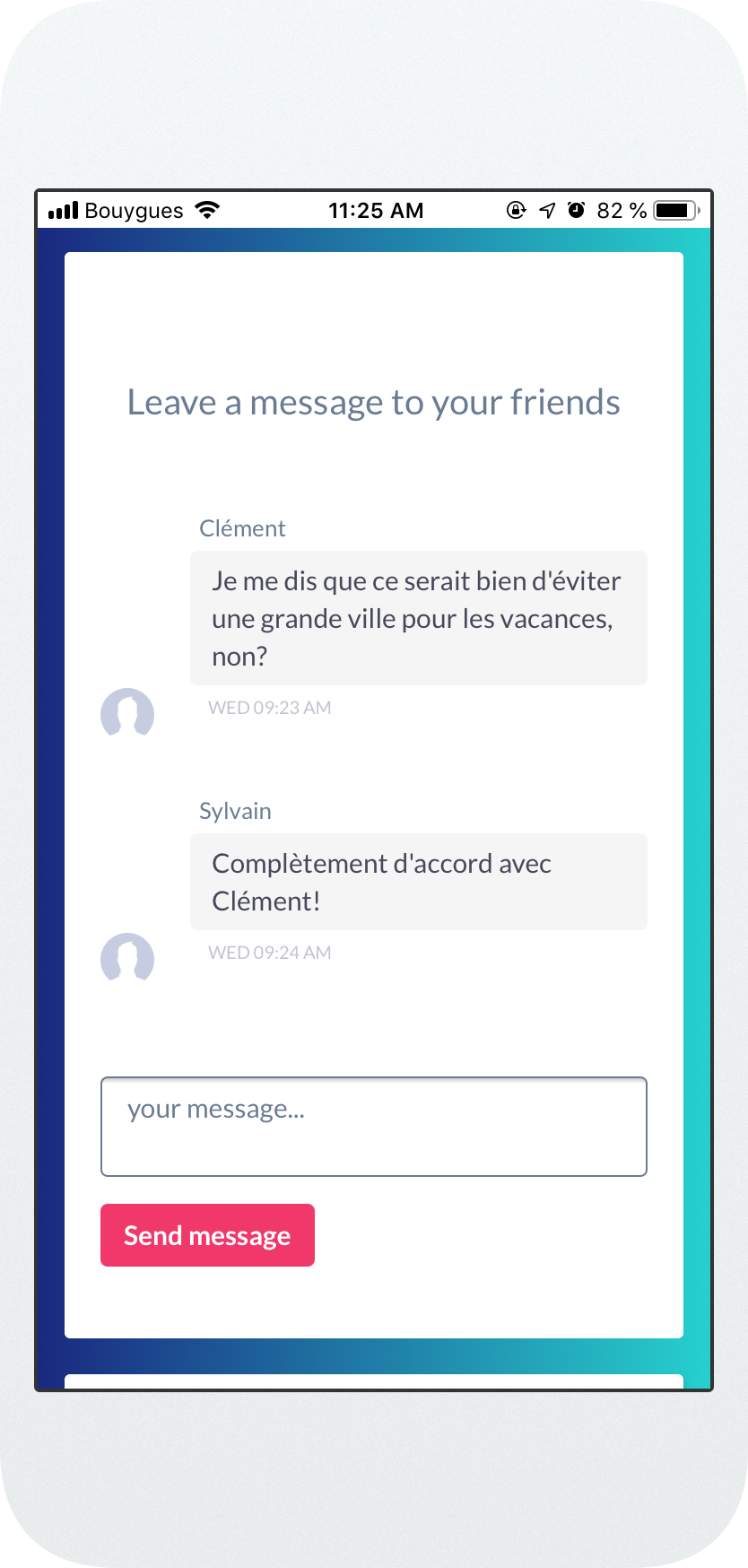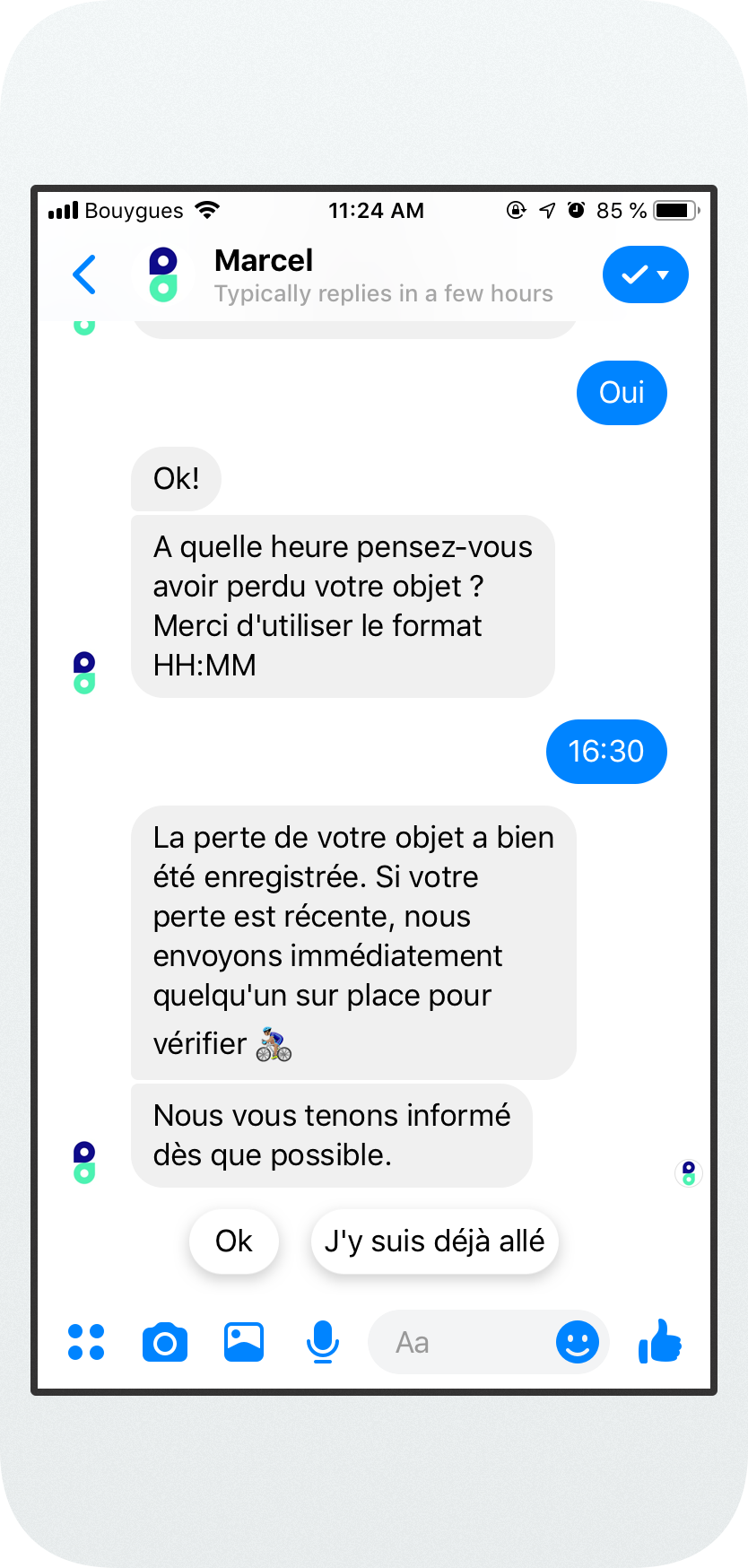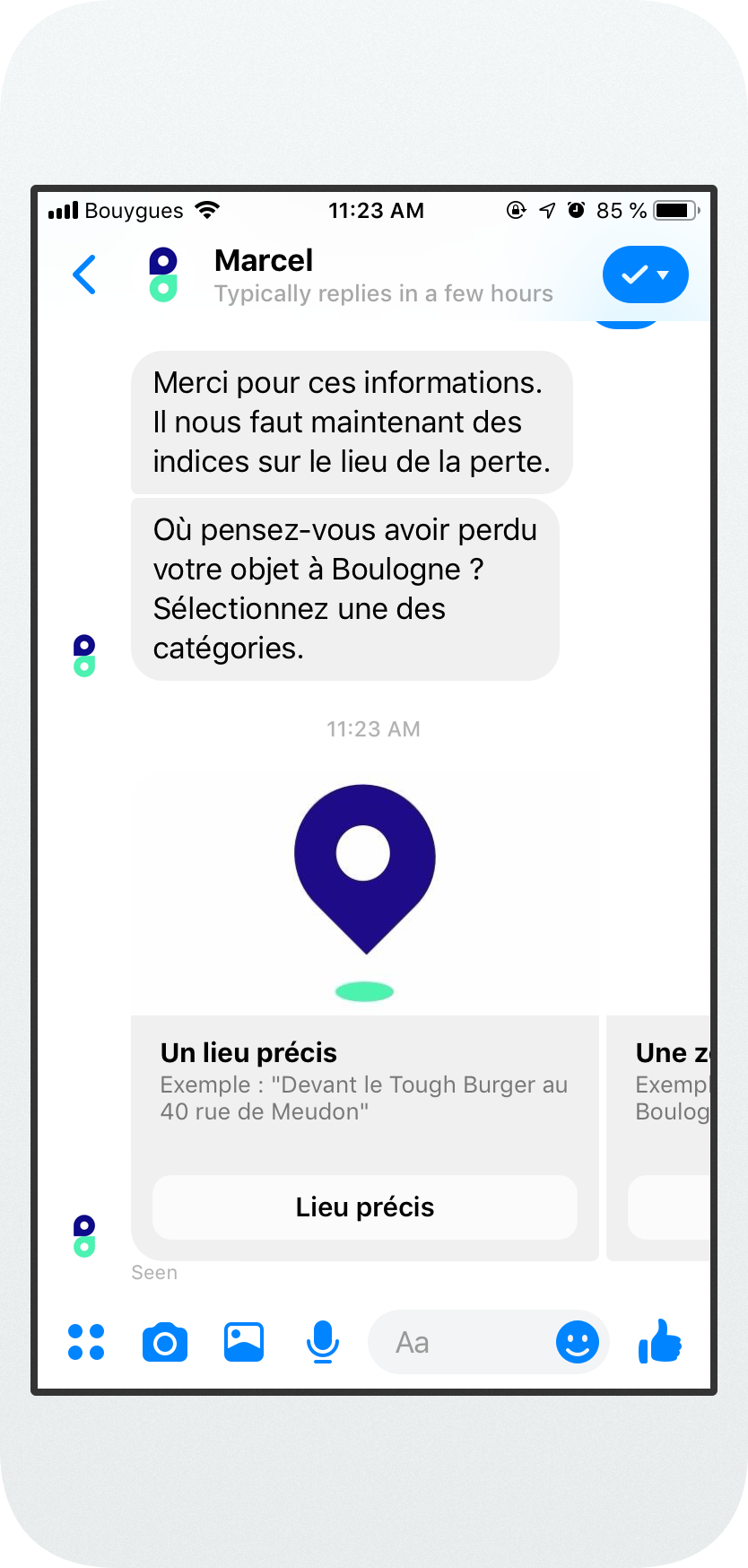Some users suffered from an illogical organization of the menus on the platform. These inconsistencies came from a historical debt due to the rapid evolution of Zest.
I worked on five recommendations, which consisted of logical regrouping, displacements, status creations, and new wording.
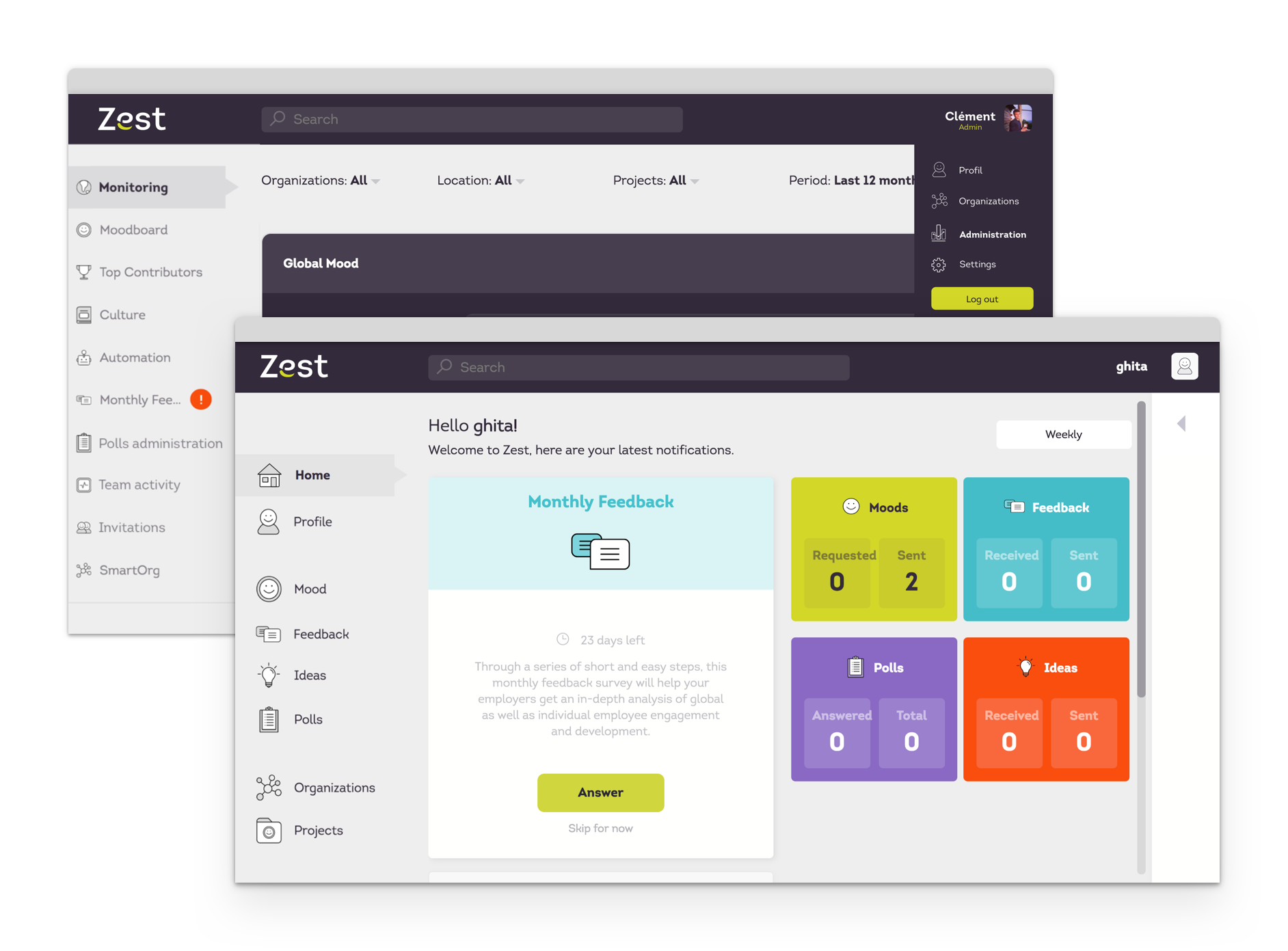
Mockups with the new menu organisation
The mission was limited in time and resources. I did neither have access to users nor to data from the base at this time. I used my fresh and naive perspective on the product and benchmarked other leading SaaS products to build a coherent menu organization.
Process
- Diagnostic of the user experience
- Benchmark with other leading SaaS products
- Recommendations and mock-ups
The recommendations have been implemented on the platform, but unfortunately, no impact analysis was carried out after the end of my mission.
Main personal lesson learned : It's hard to improve something that you can't measure.
Choogle
Choogle is a simple website that helps to collectively choose a bar, a restaurant, a holiday destination, or any other place. It’s a side project started during a coding bootcamp (Le Wagon).
Role : Web Developer Student
Year : 2017
Group decision making is always a mess whether you have to choose your next holiday destination with all your friends, a restaurant, or a location for your annual team retreat.
We built a simple tool where everyone can suggest a number of locations - e.g. 4 bars, 3 destinations for the weekend - and invite participants to upvote their favorites in a given time. At the end of the deadline the most upvoted place is automatically chosen.
